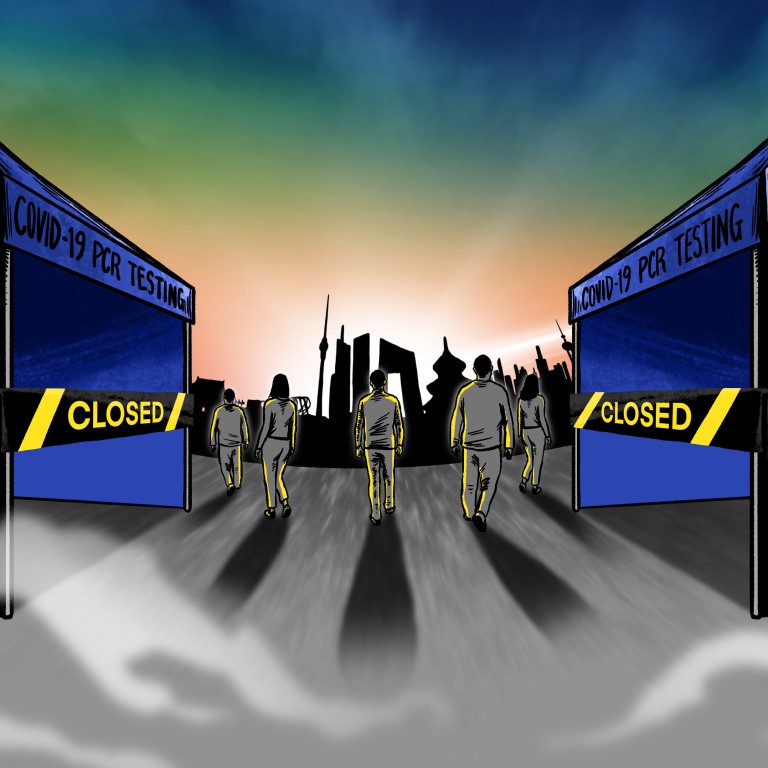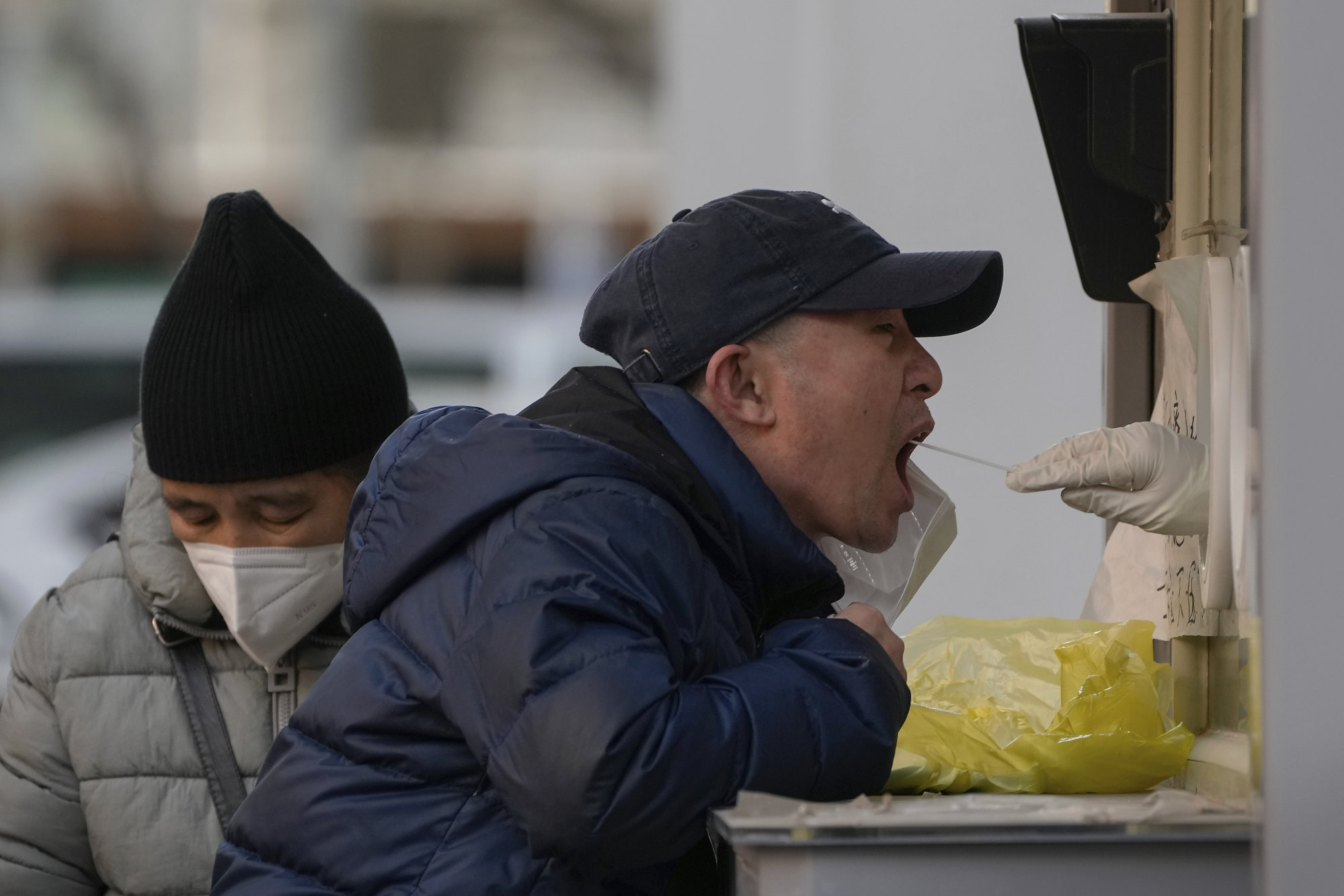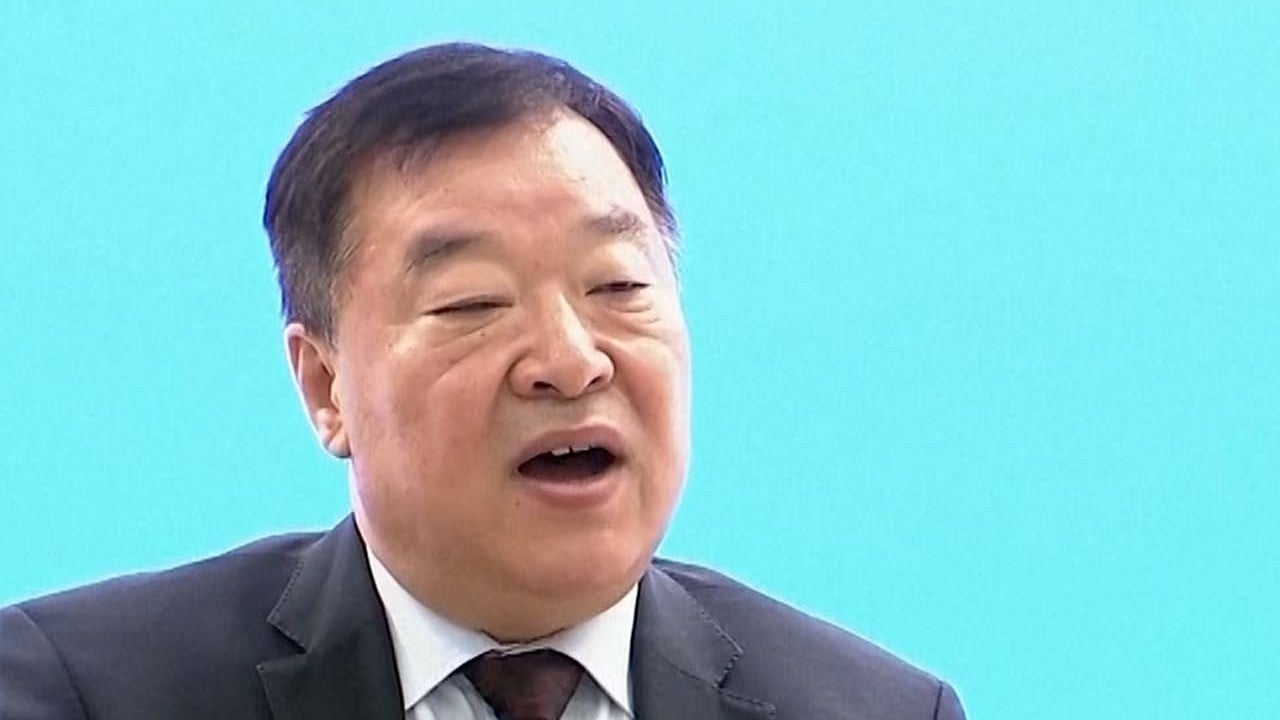
Millions of people worked in China’s mass testing system. Now they’re out of a job
- Huge army of ‘big whites’ in hazmat suits are scrambling to find work after the zero-Covid policy came to an abrupt end
- Most testing booths have been closed down, and there’s also a mountain of medical supplies that are no longer needed
Pharmacist Zhao Yonggang had been taking throat swabs at PCR testing booths in Beijing since May. But when the zero-Covid policy was suddenly abandoned in early December, mass testing was no longer required – and neither were the workers.
The agency that hired him cut the number of testing sites from 100 to seven, his working hours were halved and so was his pay. He is currently taking home 200 yuan (US$29) a day.
“There are fewer and fewer testing sites now,” said Zhao, who is from Xian in the northwestern province of Shaanxi. “I can’t find a proper job, so I’ll go back home.”
Some of them saw the growing demand for medical supplies like rapid antigen test kits and have used their knowledge of the healthcare industry and contacts to become middlemen.
On popular social networking app WeChat, chat groups where recruiters used to advertise for PCR testing staff now have posts selling RAT kits, Chinese medicine like Lianhua Qingwen – used to treat flu-like symptoms – as well as ibuprofen, paracetamol and an Indian generic antiviral drug.
The virus has been sweeping across China since restrictions were lifted, and in many places people have struggled to get hold of such medicine.
One technician with a company that used to carry out tests for state-owned enterprises and private firms said as soon as the pandemic curbs eased his employer started sourcing and selling RAT kits instead.

“The first people to start selling RATs [after Beijing’s policy change] were also the people who were doing PCR testing,” said the technician, surnamed Xing.
“You can make money as long as the price [from the supplier] is acceptable and there is a price difference,” Xing said, adding that the kits were sourced directly from factories or from other middlemen.
Before the system was dismantled, cities in China had to have at least one PCR testing site for every 2,000 to 3,000 people. Each site had to have four to five booths staffed by eight to 10 testers with medical credentials, as well as four to five assistants to run the sites, according to the National Health Commission guidelines.
One worker at a testing laboratory in northern Hebei province, who asked to be identified as “Xiaoyu”, said her company had been testing samples for private businesses and people in the community, but there was very little demand now.
She said the number of samples they had received since December 7, when the policy change was announced, was down by 80 per cent, with few people getting tested now – mainly those who need a negative test result to work, like drivers.
“The cost of [laboratory] testing is high … so now we’re basically losing money every day,” she said. “We plan to stop doing the testing soon … there’s no way – the policy change is not good [for us].”
Beijing decries curbs on Chinese travellers, threatens to reciprocate
“Xiaoli”, a nurse in Beijing, is selling supplies that she said were bought for mass testing in the city.
“I have over 1,000 test tubes and swabs here,” she said, adding that she was selling them for nearly half the price she paid for them.
In some cities, including Shenzhen, Shanghai and Hangzhou, they have been converted into treatment booths, where fever patients can see a doctor and get a prescription – a move aimed at easing pressure on hospitals overwhelmed by the surge in cases.
However, most of the medical staff in the booths have been dispatched from the healthcare system, the South China Morning Post has learned.
With the policy change, many of those who worked at the booths when they were used for mandatory testing are going back to their old jobs or looking for new ones.
When his Beijing pharmacy was not doing well last year, Alan – who did not want to give his surname – took a job as a temporary PCR tester. Now he is back in the pharmacy and has hired a couple of the other testers to help deal with the new demand for antiviral drugs.
“Many people [working at the testing sites] have lost their jobs – there’s no work there now,” he said.
In the southern city of Guangzhou, meanwhile, a former testing booth guard said some guards had gone back to their previous jobs as garment workers, restaurant staff and hotel receptionists, while others were still looking for work.
Zhang Yi, chief analyst at consulting firm iiMedia Research, said now that mass testing was over, “the mission of these workers has basically come to an end”.
“As the pandemic gradually eases, more employers will be getting back to business and will need a large number of workers,” Zhang said. “They should be the main hirers in the labour market – not testing companies offering temporary work.”
Additional reporting by Zhenzhen Liu


